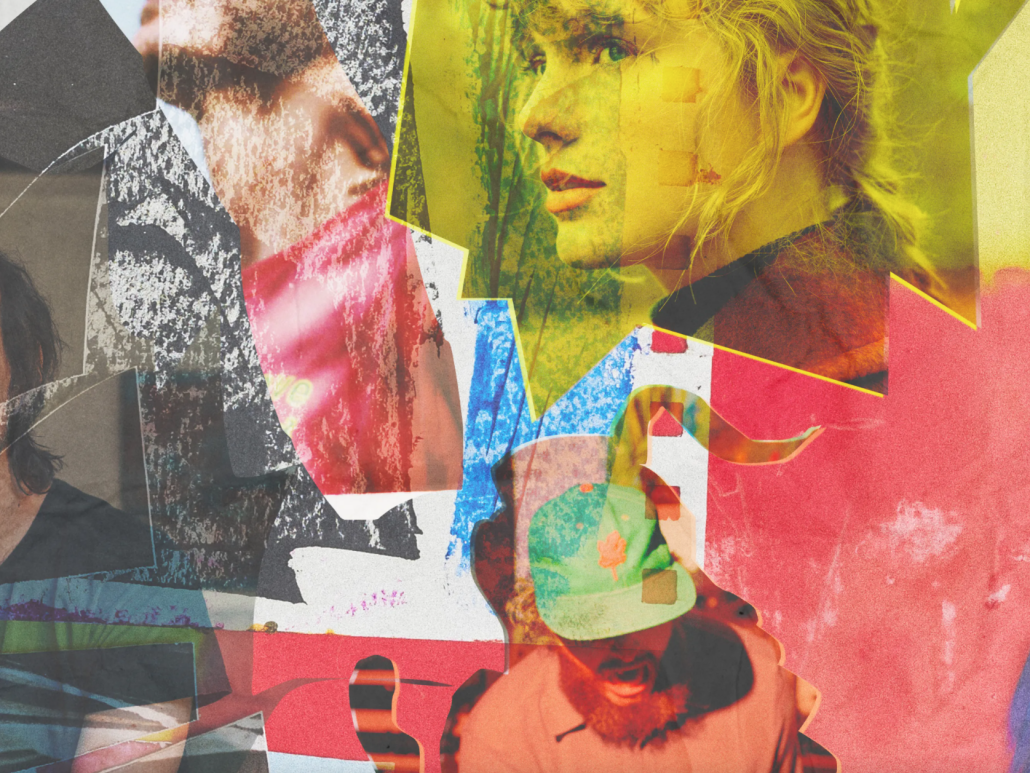Fan-them Diaries: Taylor Swift brings ‘peace’ to my mental health

Content Warning: This column contains references to mental illness.
Hi, it’s me, “I tapped on your window on your darkest night.” If you look at my Spotify, deep in my playlists, you’ll find one named “Mentally Ill Swifties,” an homage to Taylor Swift’s commentary on mental illness.
One aspect of Swift’s “folklore” and “evermore” era that I’ve appreciated is the way she doesn’t shy away from talking about mental health. The era includes tracks such as “champagne problems,” which talks about a woman who is too engrossed in her own mental health journey to commit to her partner, “this is me trying,” which deals with serious issues, such as depression, suicide and substance abuse, and — my personal favorite — “hoax,” with the beautiful quote “Stood on a cliffside screaming ‘Give me a reason.’”
It’s dark, I know. I’m not here to talk about every little reference to mental health Swift makes in her music; instead, I want to analyze how it reflects her journey with mental health and how she comes to accept that she deserves love.
Welcome back to “Fan-them Diaries.” I promise I won’t only write about Taylor Swift, but it’s just been one of those weeks. I need to take a look at my own mental health journey, and what better way to do that than through music?
Swift’s “folklore” took everyone by surprise with its sudden release in fall 2020. It also took us on a journey of storytelling with the Betty-James-Augustine affair that spans across multiple songs. The album also showcased a raw side of Swift that dealt with deeper themes of mental illness and the struggle for self-acceptance.
In comes the song “peace.”
This song follows a narrator — presumably inspired by Swift’s own voice — attempting to explain to their lover how their relationship will persist despite the hardship of being in the spotlight and dealing with mental illnesses. “I’d give you my sunshine, give you best / But the rain is always gonna come if you’re standin[g] with me,” she sings.
In relation to Swift’s life, this song parallels her struggle with scrutiny over her very public relationships. It reveals that her relationship with Joe Alwyn changed her perspective on what love should look like — in her own words, “it’s golden.”
But, for the audience, many (including myself) saw a double meaning to the lyrics: “feeling like a burden.” It’s something that people who struggle with these circumstances sometimes feel in relationships. I talk to my therapist a lot about feeling like a burden on friends because I get anxiety attacks at parties with large crowds or mute all notifications for a week straight because I don’t want to get out of bed. This feeling of burdening others is perfectly explained by “peace” and made me, for the first time, feel at peace with my mental illness.
The beauty of “peace” doesn’t stop there. Listening to my aforementioned “Mentally Ill Swifties” playlist on shuffle one day, I heard “peace,” and the song which followed, “Renegade” by Big Red Machine featuring Swift, brought upon an epiphany.
The song acts as the other half of “peace” by reexamining reflections on mental illness from a new perspective.
“Renegade” could be interpreted as the experience of someone who loves a person with a mental illness and how it leads them to doubt their relationship: “is it really your anxiety that stops you from giving me everything?”
The singer contemplates insecurity, asking whether their partner’s mental illness stops them from fully committing. By its end, the song illustrates the message of accepting a person for who they are and wanting to help them in any capacity they can.
These two songs talk about the same issue from two different perspectives — the doubt and strain that mental illness can put in the way of accepting love. On both ends, the reality of mental illness can be a complicated journey for a person who feels that being themself is a burden.
The biggest takeaway from these two songs is the idea of acceptance.
Swift showcases that everyone is deserving of love and that it is possible despite all of the obstacles one may face. Her songs bring me peace — knowing that one day I can find that acceptance within myself and live semihappily with my mental illness.
From me and my “Mentally Ill Swifties” playlist (loving and accepting you in every way),
Myriam.
Myriam Alcala is a sophomore writing about literature and popular culture in their column, “Fan-them Diaries.” They are also an associate managing editor at the Daily Trojan.

